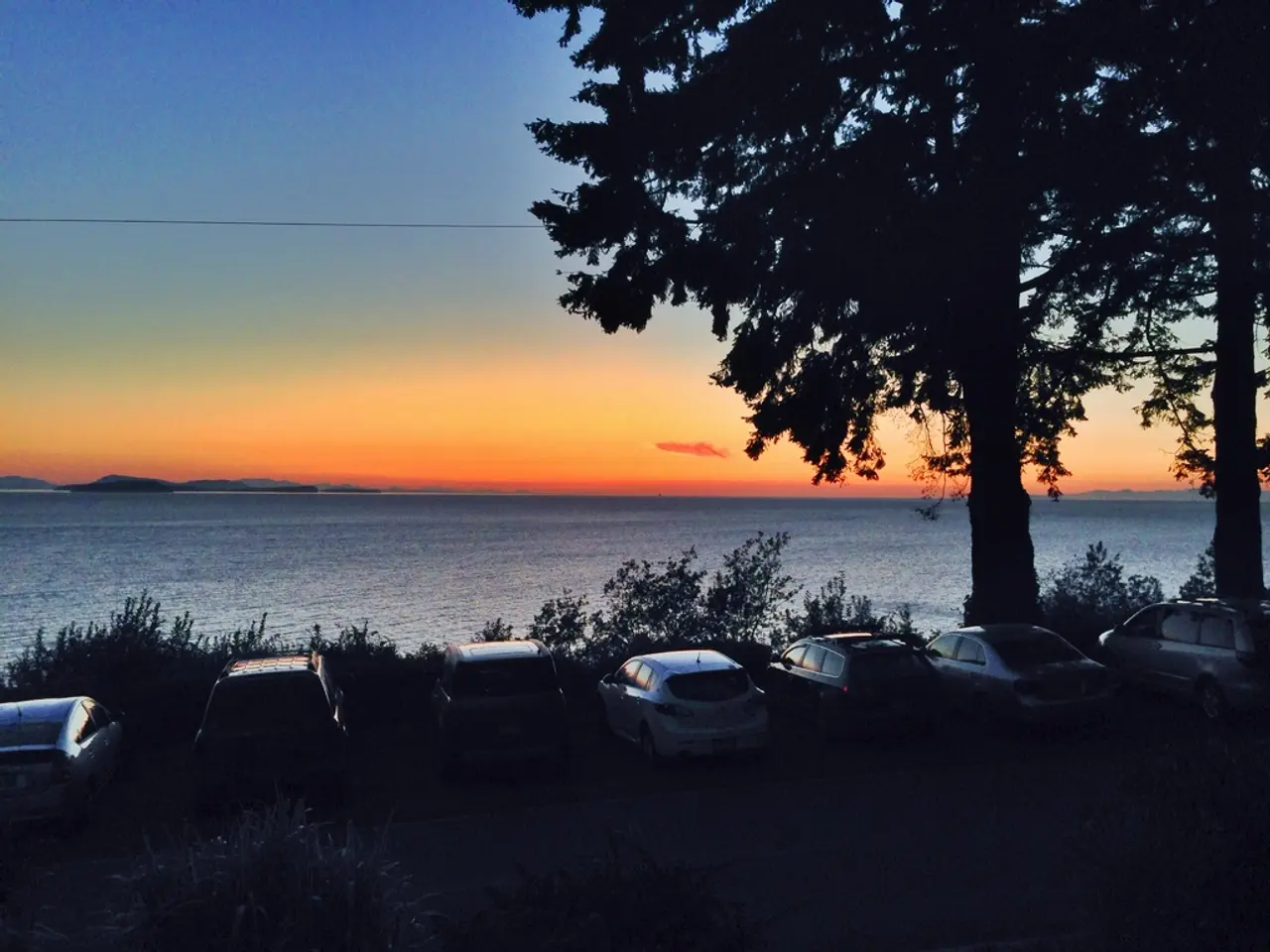Utilizing resources from the natural world: Employing instruments of nature for regional climate change resolutions
In an era where the global climate crisis demands immediate action, two innovative platforms are leading the charge towards sustainable solutions inspired by nature. The Bioregions Navigator and AskNature, backed by the Biomimicry Institute and One Earth, are transforming the way we approach conservation and climate action.
The Biomimicry Institute's AskNature platform is a treasure trove of nature's time-tested strategies, boasting over 1,700 solutions and hundreds of bio-inspired innovations. From flood-resistant housing designed after mangrove roots to cooling strategies modeled after termite mounds, AskNature offers a wealth of sustainable solutions.
The AskNature Hive, an online community of changemakers, is at the forefront of this revolution. Focusing on themes like wildfire resilience, climate adaptation, and water stewardship, the Hive facilitates connections between forest ecologists, product designers, regenerative farmers, and systems thinkers.
The Bioregions Navigator, an interactive resource, is designed to help users explore and understand bioregions, particularly in the context of environmental quality monitoring and conservation efforts. By integrating biological data, habitat conditions, and water quality, the tool classifies sites from pristine to degraded, providing a spatially contextualized understanding of ecosystem health across different bioregions.
This tool plays a crucial role in place-based conservation and climate action. By providing detailed, bioregion-specific ecological assessments, it enables focused conservation efforts where they are most needed. It also allows restoration and conservation projects to track changes in water quality and habitat conditions over time, making environmental management adaptive and evidence-based.
The One Earth's Bioregions Framework, which reimagines the world map based on ecology, not political borders, divides the Earth into 185 unique bioregions nested within 14 biogeographic realms. This framework helps communities and organizations identify the most effective climate solutions, such as preserving old-growth forests, restoring grasslands, or protecting mangrove coastlines.
By making nature's tools more accessible and aligning efforts, a stronger, more unified ecosystem of solutions can be built to help communities thrive in every bioregion on Earth. The shift towards collaboration reflects a growing understanding that all share the same planet and the same goal: a just, biodiverse, and climate-resilient future.
To join the Hive and explore your bioregion with a month free, visit AskNature.org. The Bioregions Navigator and AskNature offer a progression from understanding your bioregion's climate, ecosystems, species, and stressors to learning from nature's adaptations to those challenges. This pathway for climate action begins with understanding your region and designing for its future.
One Earth and the Biomimicry Institute are part of a movement that connects ecological knowledge with practical tools to empower local action. By learning from nature's strategies and applying them to human challenges, particularly in the context of climate action, we can build a sustainable and resilient future for all.
- The interactive Bioregions Navigator, backed by One Earth and the Biomimicry Institute, offers a spatially contextualized understanding of ecosystem health, helping focused conservation efforts in various bioregions.
- Leveraging the wealth of sustainable solutions provided by AskNature, numerous bio-inspired innovations like flood-resistant housing and cooling strategies are transforming the landscape of climate action and nature conservation.
- The Biomimicry Institute's AskNature Hive, an online community of changemakers, facilitates connections between diverse professionals, fostering collaborative efforts to address environmental challenges like wildfire resilience and water stewardship.
- Embracing the One Earth's Bioregions Framework, which reimagines the world map based on ecology, allows communities and organizations to identify precise and effective climate solutions within their bioregions, such as preserving old-growth forests or protecting mangrove coastlines.




